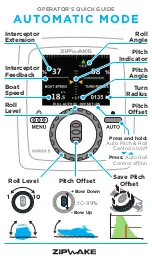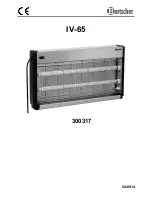
7K458-0221
1-3
Safety Instructions for Towing
Vehicles
The maximum travel speed is the lesser of
• The limit of the road conditions;
• The maximum specified ground speed;
— for towing operations as indicated in this manual
or SIS;
— of the towed vehicle as indicated in its operator’s
manual, SIS, or information sign;
• The maximum ground speed of the towed equipment
combination shall be limited to the lowest specified
ground speed of any of the towed machines. This
speed is the ground speed limitation.
EXAMPLE:
If the tractor is capable of 25 mph, the first
implement has a SIS for 19 mph, and the last
implement’s operator’s manual states its specified
ground speed is 15 mph, the towed equipment
combination ground speed limitation is 15 mph.
Attaching, Detaching, Storage
• Do not stand between the tractor and implement when
attaching or detaching implement unless both are
prevented from moving.
• Before applying pressure to the hydraulic system, be
sure all connections are tight and that hydraulic lines
and hoses are not damaged.
• Block implement so it will not roll when unhitched from
the tractor.
• Relieve pressure in hydraulic lines before uncoupling
hydraulic hoses from tractor.
NOTE
To relieve hydraulic pressure: Depending on tractor
hydraulic system, some can be relieved by actuating
control lever after engine is stopped. If tractor has electric
over hydraulic controls, it may be necessary to move the
control lever to the float position. Refer to tractor’s
operator’s manual.
Wear protective gloves and safety glasses or goggles
when working with hydraulic systems.
Maintenance Safety
• Block the machine so it will not roll when working on or
under it to prevent injury in case of hydraulic failure or
inadvertent lowering by another person.
• Do not make adjustments or lubricate machine while it
is in motion.
• Make sure all moving parts have stopped.
• Keep all guards in place. Replace any that become
damaged.
• Understand the procedure before doing the work. Use
proper tools and equipment.
Protective Equipment
• Wear protective clothing and equipment appropriate
for the job. Avoid loose fitting clothing.
• Because prolonged exposure to loud noise can cause
hearing impairment or hearing loss, wear suitable
hearing protection, such as earmuffs or earplugs.
Chemical Safety
Agricultural chemicals can be dangerous. Improper use
can seriously injure persons, animals, plants, soil and
property.
• Read chemical manufactures instructions and store or
dispose of unused chemicals as specified. Handle
chemicals with care and avoid inhaling smoke from
any type of chemical fire.
• Store or dispose of unused chemicals as specified by
the chemical manufacturer.
Prepare for Emergencies
• Keep a First Aid Kit and Fire Extinguisher handy.
• Keep emergency numbers for doctor, ambulance,
hospital and fire department near phone.








































